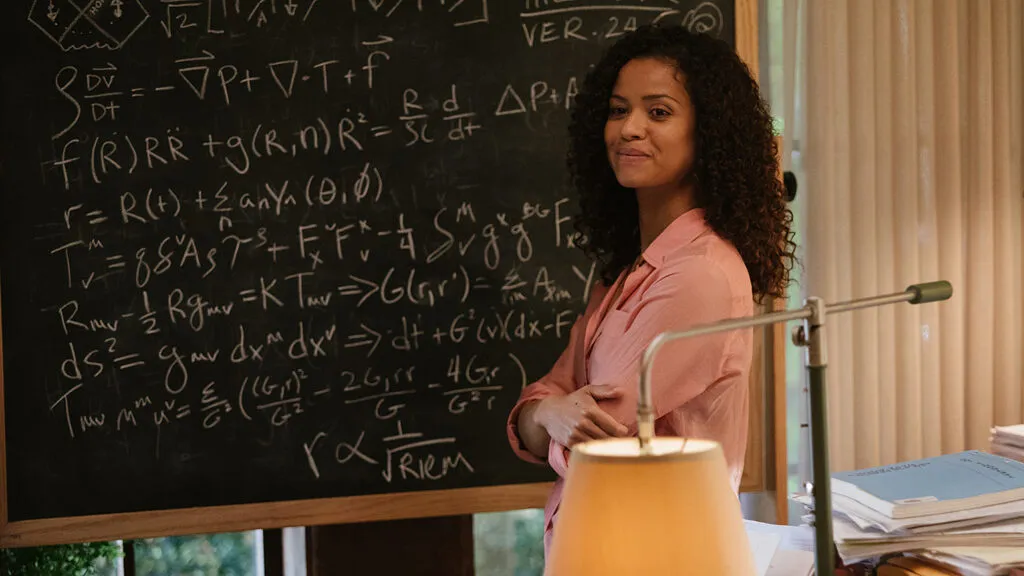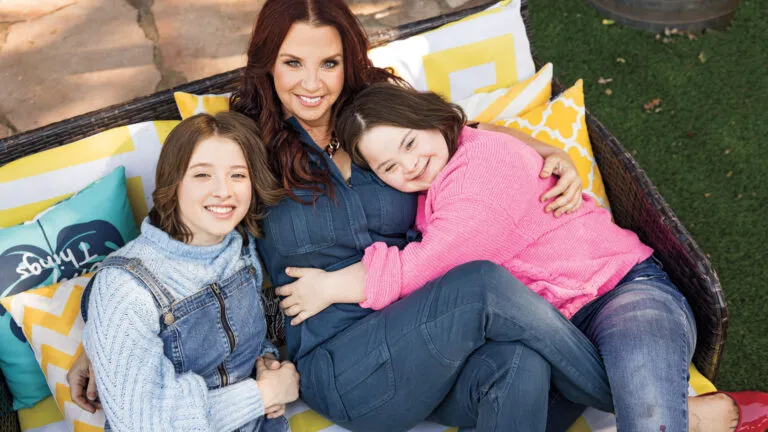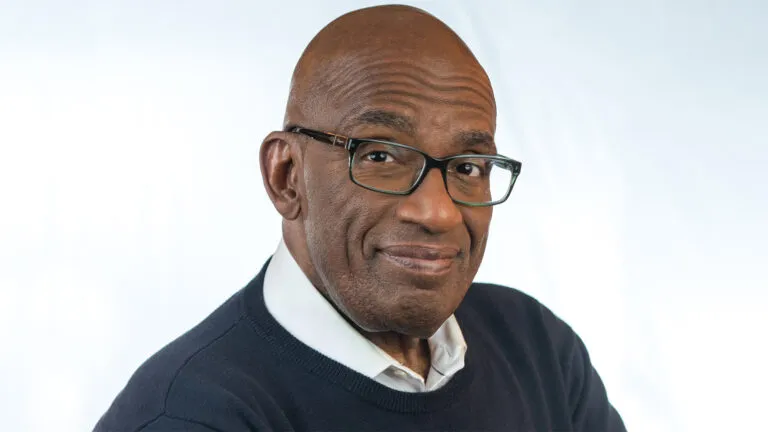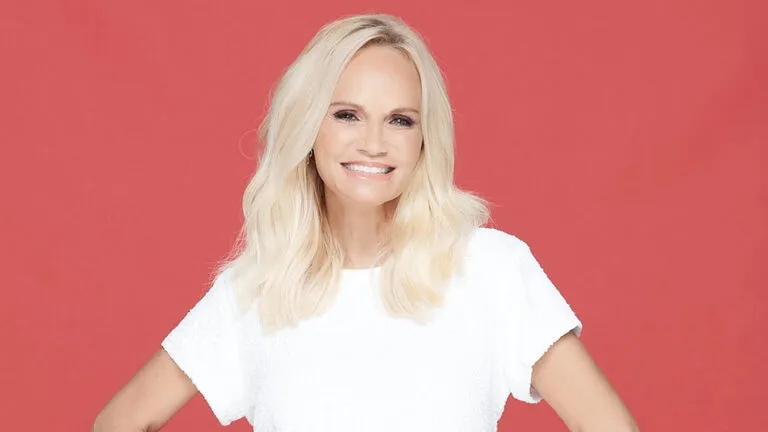Award-winning actress Gugu Mbatha-Raw is curled up in the bay window of a room at the W Hotel, overlooking Downtown Los Angeles when Guideposts.org catches up with her on a Sunday afternoon. She’s there to promote her new Disney film, A Wrinkle in Time, based on the classic book, where the child Meg Murry [Storm Reid] must travel to other dimensions to save her father. Mbatha-Raw beams when she talks about her role as Meg’s mother, Mrs. Murry, a scientist whose equations helped her husband [Chris Pine] wrinkle time.
“There were no big Disney movies with little girls [of color] that look like me and Storm [Reid, who plays Mbatha-Raw’s young daughter and the film’s hero], when I was growing up,” Mbatha-Raw explains of why she’s so proud to be a part of this history-making film. Helmed by visionary director Ava DuVernay, A Wrinkle in Time makes DuVernay the first Black woman to direct a film with a $100 million budget.
“I think images are powerful, and I think that they go into our subconscious of who our heroes are,” Mbatha-Raw says. “What do our heroes look like? What do our heroines look like? I’m excited for the next generation of young girls to see Storm as a heroine, and tap into the unbound potential that they have inside of them, of what they could achieve.”
A Wrinkle in Time is a feel-good film with a powerful call to action. In order to save her father, who is trapped deep inside an evil dimension where there is no light, Meg must overcome her own low-self image, as well as the physical evils in the world around her. She must become a “warrior for the light,” creating hope and goodness where none exists. She learns that she can battle destructive forces both internally and externally with love–and win.That inspiring, spiritual undercurrent of the film is another thing that drew Mbatha-Raw to the script.
“I think it’s Oprah [Winfrey, who plays Mrs. Which in the film] who gets to say, ‘All we have to do is find the right frequency and be who you are.’ That, to me, is like, the key to life: finding the right frequency; finding your tribe; finding your purpose–and then doing that thing.”
Fortunately for the English actress, she always knew acting was her passion. She moved to London from Witney at age 18 to study at the Royal Academy of Dramatic Arts. “When you’re a kid, you just do what you love, and I think I was lucky enough to sort of be stubborn enough to know, and nobody stamped it out of me,” she says. “I was nurtured and encouraged.”
As a result, Mbatha-Raw has had a consistent career in film, television and theater playing a spectrum of critically acclaimed roles. Her performance as the eponymous character in the British period film Belle garnered her a BAFTA nomination, and her Emmy Award-winning episode of the hit show Black Mirror, “San Junipero,” is consistently ranked by critics as one of the best in the series.
In A Wrinkle in Time, one of the most notable things about her performance is her ability to take the audience on an entire journey of emotion with her facial expressions alone, punctuating her lines with complex subtext. She credits this success to her freedom as a child to submerge herself in the craft of acting.
“I think that’s the beautiful message in [A Wrinkle in Time], that children have a purity and a truth. They’re not angling for a career, greatness, or critical acclaim. They want love. I think you are instinctively called to where you’re supposed to be. I think the challenge is not letting the world squeeze it out of you before you’ve had a chance to fully express it.”
For Mbatha-Raw, the way to stay grounded, hopeful and full of faith is to remain in the present. Like A Wrinkle in Time, both Belle and Beyond the Lights were starring and directed by women of color in 2013 and 2014, but did not see the same support that films telling stories of people of color have been receiving lately. Instead of being discouraged, Mbatha-Raw continued perfecting her craft.
“I think it’s a journey, and I’m so happy to have had projects like Belle and Beyond the Lights, as part of my journey,” she says. “You do the best with what you have at the time, you’ve got to own your journey, be in the present, and keep marching forward.”
And as she’s marched forward, her work has built the foundation upon which A Wrinkle in Time now stands. “I think we’re all contributing something to the evolution of our culture,” she says. “And that, for me, is really what it’s all about: How can we get the culture to evolve? I think we’re at an exciting tipping point where we’re really gathering a sense of momentum. It’s not just [period films like] 12 Years a Slave and it’s not just Belle, and it’s not just odd ones here and there. Now, it’s like there’s a sense of community, and it’s like, people are gaining confidence. Women are gaining confidence. People are speaking up. There’s a girls club now, as well as a boys club. That’s really exciting.”
She hopes that the powerful images and messages in the film will continue that forward progression.
“I hope that people go on a magical adventure,” she says of the kids, parents, and people of all ages she hopes will see the film. “I hope some of the messages seep in there about being who you are, being authentic, finding your voice, and being a warrior. And that we’ll keep the culture marching forward.”





